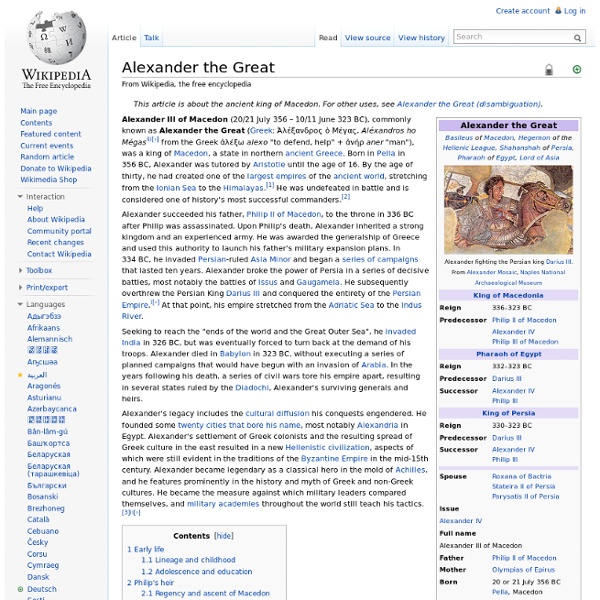Romulus
Legendary founder and first king of Rome Romulus () was the legendary founder and first king of Rome. Various traditions attribute the establishment of many of Rome's oldest legal, political, religious, and social institutions to Romulus and his contemporaries.
Numa Pompilius
King of Rome Numa Pompilius (; 753–673 BC; reigned 715–673 BC) was the legendary second king of Rome,[1] succeeding Romulus. He was of Sabine origin, and many of Rome's most important religious and political institutions are attributed to him. Genealogy[edit] Titus Livius (Livy) and Plutarch refer to the story that Numa was instructed in philosophy by Pythagoras but discredit it as chronologically and geographically implausible.[3] Kingship[edit]
Publius Valerius Publicola
Publius Valerius Poplicola or Publicola (died 503 BC) was one of four Roman aristocrats who led the overthrow of the monarchy, and became a Roman consul, the colleague of Lucius Junius Brutus in 509 BC, traditionally considered the first year of the Roman Republic. Early life[edit] The revolution[edit]
Marcus Furius Camillus
Early life[edit] The father of Camillus was Lucius Furius Medullinus, a patrician tribune of consular powers. Camillus had more than three brothers: the eldest one was Lucius junior, who was both consul and tribune of consular powers. The Latin noun camillus denoted a child acolyte at religious rituals. During Camillus's infancy, his relative Quintus Furius Paculus was the Roman Pontifex Maximus.[1] The 'military tribunes with consular authority' or consular tribunes (in Latin tribuni militum consulari potestate), were tribunes elected with consular power during the so-called Conflict of the Orders in the Roman Republic.
Quintus Fabius Maximus Verrucosus
Quintus Fabius Maximus Verrucosus, surnamed Cunctator (c. 280–203 BC), was a Roman statesman and general of the third century BC. He was consul five times (233, 228, 215, 214, and 209 BC) and was appointed dictator in 221 and 217 BC. He was censor in 230 BC. His agnomen, Cunctator, usually translated as "the delayer", refers to the strategy that he employed against Hannibal's forces during the Second Punic War.
Gaius Marcius Coriolanus
Roman general Veturia at the Feet of Coriolanus by Gaspare Landi Gaius Marcius (Caius Martius) Coriolanus () was a Roman general who is said to have lived in the 5th century BC. He received his toponymic cognomen "Coriolanus" because of his exceptional valor in a Roman siege of the Volscian city of Corioli. He was subsequently exiled from Rome, and led troops of Rome's enemy the Volsci to besiege the city. In later ancient times, it was generally accepted by historians that Coriolanus was a real historical individual, and a consensus narrative story of his life appeared, retold by leading historians such as Livy, Plutarch, and Dionysius of Halicarnassus.
Lucius Aemilius Paullus Macedonicus
2nd-century BC Roman consul and general Lucius Aemilius Paullus Macedonicus (c. 229 BC – 160 BC) was a two-time consul of the Roman Republic and a noted general who conquered Macedon, putting an end to the Antigonid dynasty in the Third Macedonian War. Family[edit]
Marcus Claudius Marcellus
212–210 BC coin of Marcellus, celebrating his conquest of Sicily. Early life: distinguished soldier and politician[edit] Little is known of Marcus Claudius Marcellus’ early years since the majority of biographical information pertains to his military expeditions.
Cato the Elder
Roman politician, soldier, writer and economist Cato the Elder (; Latin: Cato Major; 234–149 BC), born Marcus Porcius Cato[n 1] and also known as Cato the Censor (Cato Censorius), Cato the Wise (Cato Sapiens), and Cato the Ancient (Cato Priscus), was a Roman soldier, senator and historian known for his conservatism and opposition to Hellenization.[1] He was the first to write history in Latin. He came from an ancient Plebeian family who were noted for their military service. Like his forefathers, Cato was devoted to agriculture when not serving in the army.



